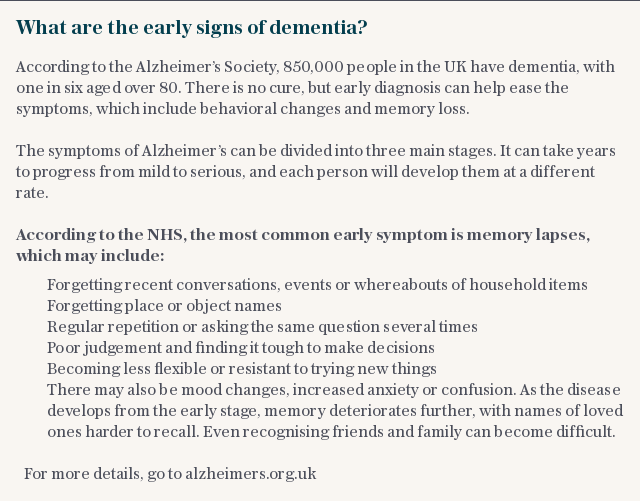Five-minute neck scan could spot dementia 10 years before symptoms develop

A simple, five-minute neck scan could predict the potential onset of dementia 10 years before symptoms appear, research has found.
Experts hope it could become part of routine screening for those in middle-age at risk of developing the disease.
The study, led by scientists from University College London (UCL), involved monitoring the strength of the pulse travelling towards the brain.
As the heart beats, the physical pulse it generates reaches different parts of the body at different levels of intensity.
Researchers said that healthy, elastic vessels near the heart usually cushion each heartbeat, diminishing its energy and therefore preventing it from reaching delicate blood vessels elsewhere in the body.
However, factors such as ageing and high blood pressure can cause the stiffening of these vessels and may diminish their protective effect.
As a result, a progressively stronger pulse can travel deep into the fragile vessels which supply the brain.
Over time, this can cause damage to the small vessels of the brain, structural changes in the brain's blood vessel network and minor bleeds known as mini strokes, which could all contribute to the development of dementia.
Professor Metin Avkiran, associate medical director at the British Heart Foundation, which co-funded the research, said: "Our beating heart is what keeps us alive, but we also need healthy blood vessels to maintain a healthy blood supply to all organs, including the brain.

"This test may provide a new way to identify people at risk of cognitive decline long before they display any noticeable symptoms.
"What we need now is further research, for example to understand whether lifestyle changes and medicines that reduce pulse wave intensity also delay cognitive decline."
The study involved almost 3,200 middle-aged volunteers who were tracked over a period of 15 years.
Participants were given an ultrasound in 2002, which measured the intensity of the pulse travelling towards the brain.
Their memory and problem-solving abilities were then regularly monitored.
Those with the highest intensity pulse at the beginning of the study were around 50 per cent more likely to exhibit accelerated cognitive decline over the following decade compared to the others.
This difference was present even after adjustments for possible confounding factors, such as age, body mass index, blood pressure, diabetes and any other heart conditions.
Researchers said cognitive decline was a noticeable and measurable reduction in cognitive abilities including memory, language, thinking and judgment skills.
They plan to test whether the scan improves predictive "risk scores" for dementia which already exist.
Dr Scott Chiesa, post-doctoral researcher at UCL, said: "These findings demonstrate the first direct link between the intensity of the pulse transmitted towards the brain with every heartbeat and future impairments in cognitive function.
"It's therefore an easily measurable and potentially treatable cause of cognitive decline in middle-aged adults which can be spotted well in advance."
Dementia affects around 850,000 people in the UK. Vascular dementia is one of the most common types, caused by a problem with blood supply to the brain which damages or kills brain cells.
Research suggests that controlling blood pressure and cholesterol, having a healthy diet, regular exercise and not smoking can all help to stave off dementia.
The research is being presented at the American Heart Association Scientific Sessions conference in Chicago.

 Yahoo News
Yahoo News 
